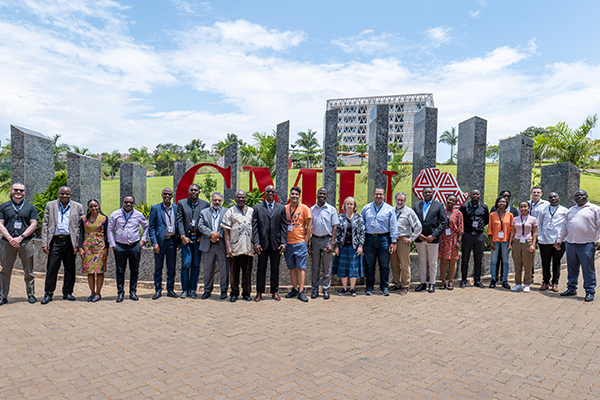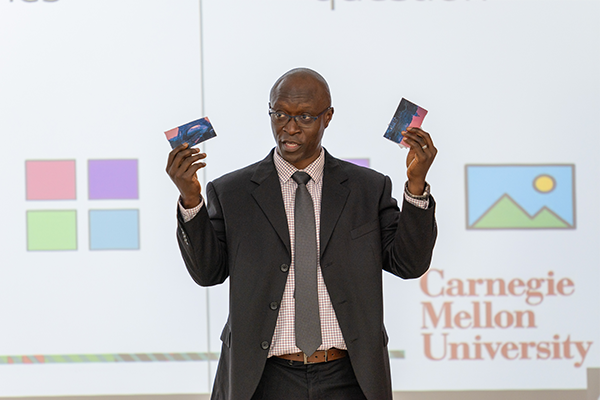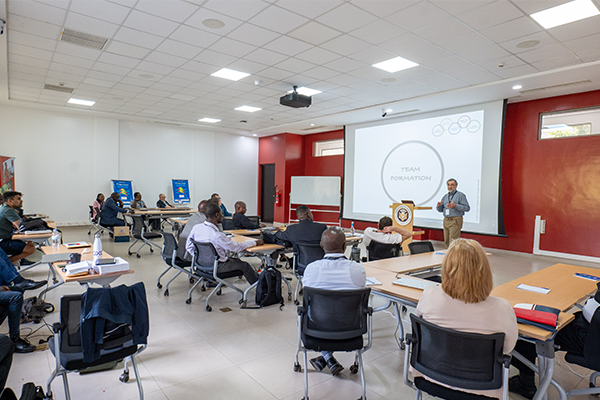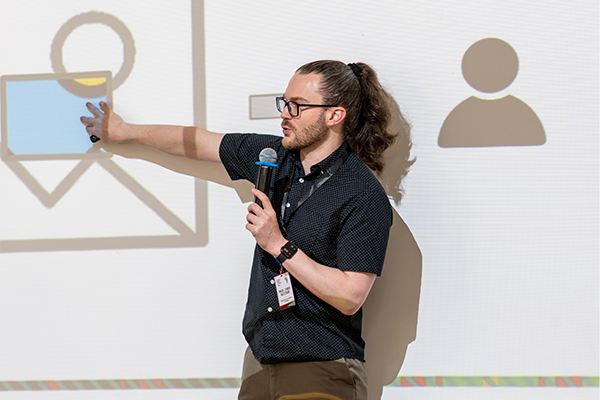Design science in the age of AI
A collaborative initiative with the National Academy of Engineering
Monica Sumbi
Apr 19, 2024
Conrad Tucker, director of Carnegie Mellon University Africa, and Panos Papalambros, a member of the National Academy of Engineering (NAE), spearheaded a design science workshop at CMU-Africa that aimed to transcend the boundaries of traditional design thinking.
Design science, as explained during the workshop, extends beyond the conventional framework of design thinking by focusing on the creation of artifacts and their post-integration impact on daily life. This approach encourages a more interdisciplinary and rigorous examination of design, consideration of the ongoing digital transformation, and the advent of artificial intelligence tools.
The event, held in partnership with the African Engineering and Technology (Afretec) Network, was facilitated by collaborator and co-presenter Chris McComb, an associate professor of mechanical engineering at Carnegie Mellon University. It allowed participants to adopt an informal, hands-on approach while still gaining practical experience applicable to startups, academic settings, and research development. Participants were also encouraged to embrace and advocate for design science in research, education, and practice, with a particular focus on the African context.
The workshop laid down the foundation for a network of professionals committed to advancing design science, helping embed the discipline into African educational and research institutions. This effort aims at fostering innovative solutions that address Africa’s distinct challenges and opportunities.
The participants represented universities in east, west, and southern Africa.
"The ability to bring together so many Afretec Network partners with diverse technical backgrounds is a testament of design science being able to transcend cultures and disciplines for a truly global impact," Tucker says.
Papalambros adds to the inspiration behind organizing the workshop: "My motivation for organizing this workshop stems from an initiative I began five years ago during my tenure as president of the Design Society. We engaged in discussions on Africa's development, mindful of the continent's impending population boom. Our focus was on how to foster sustainable wealth creation because if Africa follows the developmental footsteps of the U.S., Europe, and China, the environmental consequences could be near catastrophic."
He also recognizes the significance of the workshop's alignment with the goals of the U.S. National Academy of Engineering, a leading advisory body to the U.S. Congress on engineering and technological matters. "Having our workshop endorsed by the NAE leadership is very important," he notes, highlighting the academy's keen interest in expanding its activities across Africa.
Having our workshop endorsed by the NAE leadership is very important.
Panos Papalambros, NAE member
As output from the workshop, the proposed projects will seek to leverage the digital transformation towards sustainable and equitable developments that advance current approaches and practices.
"We are grateful for the NAE endorsement of this event that provided our Afretec Network partners with an opportunity to learn more about this prestigious organization and the global impact that its members have had. Our hope is that the impact that African researchers and engineers have had, and continue to have in their communities, the continent, and the world, will be more globally visible so that one day, they themselves may be inducted into the academy." Tucker concludes.



